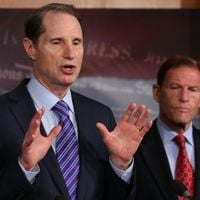Federal workers across the United States are grappling with mounting anxiety, financial hardship, and a sense of abandonment as the government shutdown entered its tenth day on October 10, 2025. For over 600,000 federal employees now furloughed and about 1.8 million more—including active-duty military—working without pay, this shutdown is more than a political standoff: it’s a personal crisis. As reported by The Washington Ten, today was supposed to be payday for many, yet paychecks simply didn’t arrive. Instead, families are tightening budgets, cutting back on childcare, and, in some cases, considering leaving their communities altogether in search of better prospects.
The shutdown’s roots lie in a bitter standoff in Congress. Democrats are demanding that Republicans agree to extend government subsidies for those on Obamacare, shielding millions from steep premium hikes. They also want ironclad assurances that the Trump administration won’t renege on budget agreements, as it has in recent months by firing workers and refusing to spend funds allocated by Congress. Republicans, meanwhile, are holding out for a clean, no-strings-attached spending bill to keep government running through late November. According to The Washington Ten, both sides appear entrenched, with little sign of compromise on the horizon.
The impact on everyday life is already being felt. Airports, including Ronald Reagan Washington National Airport, have reported significant delays as air traffic controllers—facing the prospect of working indefinitely without pay—have begun to call in sick at higher rates. This echoes the chaos of the 2019 shutdown, when airports like LaGuardia and Newark Liberty saw 90-minute delays and security lines in Atlanta ballooned just before the Super Bowl. Now, the Federal Aviation Administration is again warning of increased absenteeism, and lawmakers on both sides are scrambling for solutions.
One of the most contentious issues concerns the pay of active-duty military personnel. For the first time in recent history, these service members are not exempt from the shutdown’s pay freeze. Their next paycheck, due October 15, hangs in the balance. A bipartisan bill to exempt the military from the shutdown’s effects has been introduced, and nearly 80 House Democrats have signed a letter urging Speaker Mike Johnson to bring the Pay Our Troops Act (H.R. 5401) to a vote. The measure, introduced by Rep. Jen Kiggans (R-Va.) and supported by 148 cosponsors from both parties, would guarantee timely pay for military personnel, Defense Department civilians, contractors, and the U.S. Coast Guard. Yet, as reported by Washington Ten and corroborated by Federal News Network, House GOP leaders have refused to call members back from recess to vote on the bill.
The human toll of the shutdown is stark. One former State Department employee, laid off this past summer, told The Washington Ten that her family had already been forced from two incomes down to one—and now, with her husband furloughed, they have none. She’s stopped eating out, shops only for bargains, and is even weighing whether to pull her young daughter from daycare to save money. That’s a tough decision, given the months-long waitlists at area centers. "The shutdown has been a significant issue for our family financially because we had gone from two incomes down to one. And now that one income is gone as long as the shutdown goes on," she said.
Others have shared similar stories of belt-tightening. One former federal worker, whose spouse remains employed by the government, said they’ve pulled their child out of summer camp and canceled after-school care. The job market, already saturated with laid-off workers, offers few prospects. "It is traumatizing – as intended," he said, echoing the words of OMB Director Russell Vought, who in a 2024 speech said, "When [bureaucrats] wake up in the morning, we want them to not want to go to work because they are increasingly viewed as the villains. We want to put them in trauma."
The sense of being targeted is widespread. President Trump, during a Cabinet meeting on October 9, 2025, declared, "We will be making cuts that’ll be permanent. And we’re only going to cut Democrat programs, I hate to tell you. They wanted to do this, so we’ll give them a little taste of their own medicine." The administration has also circulated an Office of Management and Budget memo arguing that federal workers aren’t automatically entitled to back pay, despite a 2019 law—signed by President Trump himself—guaranteeing it. This has left many workers, like a current State Department employee, fearing that even if the courts ultimately side with them, the damage of months without pay will be irreparable.
Some lawmakers are pushing for broader relief. According to Federal News Network, Senate Democrats have advocated for immediate pay not only for military members but also for air traffic controllers and other essential federal employees. "Not just our military, but other emergency, other public safety and national security personnel," said Sen. Richard Blumenthal (D-Conn.). Sen. Ron Wyden (D-Ore.) floated the idea of taxing billionaires to fund the pay, while Sen. Tim Kaine (D-Va.) acknowledged reviewing proposals to ensure military members don’t miss paychecks, even as civil servants are left to wait. "I don't want folks to miss a paycheck, but I don't want just the military not to miss a paycheck," said Sen. Gary Peters (D-Mich.). "I want other government employees not to miss their paycheck too. We have air traffic controllers and TSA agents. I mean, just go down the list."
Yet, consensus remains elusive. Some, like Sen. Ruben Gallego (D-Ariz.), support prioritizing military pay but are less willing to extend the same to civilian employees. "It sucks," Gallego said of civil servants working without pay, "but we have to make choices." Others, like Sen. Dick Durbin (D-Ill.), worry about the message sent by paying some but not all. "Not a good one," he said.
Meanwhile, Democrats have urged utility companies and banks to offer leniency to federal workers missing payments, and some have introduced legislation to prevent late fees or credit damage during the shutdown. But for many, these measures are cold comfort. A Food and Drug Administration employee told The Washington Ten they felt like "pawns" in a larger political game, while a Census Bureau worker described the constant threat of layoffs as "a swinging ax over our heads." A Department of Labor staffer said half their colleagues had already been laid off, and the shutdown felt like "just another blow from the wrecking ball."
Polls suggest the public is siding with Democrats, blaming Republicans more for the shutdown and overwhelmingly supporting the extension of Obamacare subsidies. Yet, as Sen. Thom Tillis (R-N.C.) pointed out, many Americans remain distracted—at least for now. "People in America are distracted with many other things. People [in D.C.] are putting too much stock in how much this matters to the average voter right now. It’s only government employees that are paying the most attention to it. And my heart goes out to them."
For federal workers, though, attention is not a luxury—it’s a necessity. As the shutdown drags on, the sense of isolation deepens. "It felt like you were getting kicked for a year," said one State Department employee. "And now, it feels like you don’t exist."
With Congress deadlocked, the White House threatening deeper cuts, and families growing desperate, the question remains: how long before the pain spreads beyond government workers and forces a resolution? For now, uncertainty reigns—and the human cost of the shutdown continues to mount.



